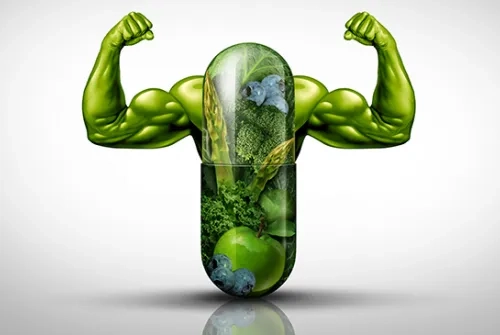Alo Yeditepe
Alo Yeditepe
Vitamins that Strengthen the Immune System Against Coronavirus
Everyone is looking for ways to strengthen their immune system. Stating that boiling and consuming plant peels such as lemon, orange, and bergamot can be beneficial, Internal Medicine and Nephrology Specialist Prof. Dr. Gülçin Kantarcı underlined that people in special groups such as those with chronic diseases and pregnant women should definitely consult their physician before consuming these products.
Yeditepe University Hospitals Internal Medicine and Nephrology Specialist Prof. Dr. Gülçin Kantarcı said that the immune system should be kept strong all the time, not only during the pandemic period, and gave information about foods that will help strengthen the body's resistance.
“Consume Foods With Vitamin C And Zinc”
Emphasizing the importance of proper nutrition to keep the immune system strong, Prof. Dr. Gülçin Kantarcı made the following statements: “It is right to consume more foods containing vitamin C and zinc. The immune-boosting effects of ginger and turmeric, which are rich in vitamin C, have been scientifically proven. We see that ginger and turmeric are mixed with honey and consumed by the people. It is important to increase the consumption of green tea. Green tea is both an antioxidant and a good immune regulator.”
Emphasizing that the peels of plants such as lemon, orange, and bergamot should be boiled before consumption, Kantarcı said, “There are very strong polyphenols in plant bark. These polyphenols adversely affect the activities of viruses and prevent the virus from entering the cell. Some of these plant peels are lemon, orange, and bergamot peels. If we add a little honey to the drink you will get by boiling these peels for a few minutes, you will get a mixture that will strengthen the immune system.”
“Honey Is the Best Food for Strengthening the Immune System’”
Pointing out that the use of natural honey is also important for immunity, Kantarcı said, “One of the most used foods to strengthen immunity is honey. It is important to use natural honey in this process. Again, foods such as carrots, garlic, lemon, and arugula that we consume are foods that strengthen immunity and have very high antioxidant effects. Some of these foods have inhibitory effects on the entry routes of the virus, and some have direct effects on the virus.”
“Pregnant Women Should Be Careful When Using Ginger”
Stating that each food should be used in sufficient quantities, Yeditepe University Hospital Internal Medicine Specialist Kantarcı said, “The frequency and dosage of the nutrients consumed are important. For example, ginger should be consumed to fill a teaspoon. Consumption of ginger with honey or lemon is also important. But first of all, it is important to eat a balanced and healthy diet. There is no such thing as 'I drink two tablespoons of turmeric a day so that I don't get infected'. These foods should be consumed at regular intervals. Because foods and plants can have negative effects as well as positive effects like medications. For example, ginger can cause miscarriage when used in high doses in pregnant women. For this reason, it should not be forgotten that herbal products are supportive and complementary, and a physician should be consulted before using them.”
In recent days, when infections, especially coronavirus, have increased, the importance of strengthening the immune system has come to the forefront once again. So, what are immune system-boosting supplements? What vitamins should we take to strengthen the immune system?
Yeditepe University Hospitals Internal Medicine and Nephrology Specialist Prof. Dr. Gülçin Kantarcı said that the risk of contracting infectious diseases decreases when a diet enriched with vitamins, minerals, and antioxidants is applied and made suggestions to strengthen immunity.
Powerful Antioxidants: Vitamins A and E
Vitamin A in yellow, orange and green vegetables and fruits such as eggs, milk, fish, spinach, oranges, carrots, green peppers, and apricots are powerful antioxidants. Consuming these foods in certain amounts plays an important role in preventing diseases.
Vitamin A is an antioxidant vitamin that fights free radicals, supports skin and eye health, fights cancer by blocking DNA mutations in cancerous cells, and delays aging.
The most important feature of vitamin E is that it is a powerful antioxidant. Oily seeds such as hazelnuts, walnuts, almonds, oils, green leafy vegetables, and legumes are rich in vitamin E.
The amount of Vitamin A Required Daily
In foods, vitamin A is found as retinol, and vitamin A precursor as carotene. The daily requirement is 1000 mcg for adult men and 800 mcg for women.
The amount of Vitamin E Required Daily
The daily requirement for adults is 8-10 mg/day.
Vitamin B12 Against Depression
Vitamin B12, also called cobalamin, is a water-soluble vitamin present in every cell of the human body. Vitamin B12 is the largest of the eight types of Vitamin B. All over the world, B12 deficiency is considered to be one of the leading nutritional deficiencies.
Vitamin B12 benefits our mood, energy level, memory, heart, skin, hair, digestion, and more. It is also a necessary vitamin in adrenal insufficiency, enzyme production, formation of multiple metabolic functions including DNA synthesis and hormonal balance, and protection of nervous and cardiovascular systems.
The amount of Vitamin B12 Required Daily
The recommended daily intake of B12 is between 2-3 micrograms/mcg and 4-7 micrograms/mcg for adults. The number of needs increases in pregnant and lactating women.
Vitamin C
Vitamin C ensures the removal of harmful substances from the body and strengthens the defense system. Foods such as green pepper, parsley, cress, arugula, cauliflower, spinach, orange, lemon, tangerine, and rosehip contain plenty of vitamin C. Salads, like fruit juices, should be prepared just before consumption to prevent loss of vitamin C.
Its deficiency can cause symptoms such as immune system, gingivitis, and easy bruising. Conversely, getting enough of it can help protect from disease and infection, increase iron absorption, and even reduce the risk of painful conditions like gout.
The amount of Vitamin C Required Daily
The required daily intake of Vitamin C is 50-75 mg per day for adults.
Vitamin D
Vitamin D strengthens the healthy bone structure and the immune system helps prevent depression and insulin resistance and may have anti-cancer properties.
The amount of Vitamin D Required Daily
The safe upper limit for vitamin D intake in adults is 4000 units per day and around 1000-1500 units in the first years of age.
Vitamin K for Bone and Heart Health
It is an important fat-soluble vitamin that plays an important role in bone and heart health. It is one of the main vitamins that play a role in bone mineralization and blood clotting, it also helps maintain brain function, and healthy metabolism and protects against cancer.
The amount of Vitamin K Required Daily
The daily requirement for adults is 65-80 mcg.
About
Faculty and Year of Graduation:
Uludag University Faculty of Medicine 1984-1990
”
See Also
- Stomach-Duodenum X-ray
- Life Triangle, Not a Bag, Saves Life during an Earthquake
- Pudendal Nerve Compression
- What is Coronavirus?
- A New Record From Turkish Neuro Surgeon
- The True Face of the Protein Myth
- Antibiotics Kill Beneficial Bacteria, Not Viruses
- Allergies in Children Can Increase During the Summer Months
- Cancer Treatment Methods
- What Methods Are Used in Infertility Treatment?
- Another Proud Achievement by a Turkish Scientist
- Did You Know That Our Bodies are Managed by Hormones?
- HoLEP Eliminates 85 percent of Drug Use in the Treatment of Benign Prostate Enlargement
- Causes of Hearing Loss
- Hip Osteoarthritis and Hip Prosthesis
- Balloon Sinuplasty
- Can Nutritional Defects Underlie Middle Ear Inflammation?
- What is Polycystic Ovary Syndrome/PCOS?
- Has Your Child Adapted to School?
- Is the Incidence of Reflux Increasing Among Children?
- Let the Bonding Between Mother And Child Not Be Sacrificed for Success!
- If You Consume More Than 5 grams of Salt...
- Intense Stress Makes Hair Ringworm
- HIV Can Be Hidden for 10 Years without Any Symptoms!
- The Biggest Obstacle to Early Diagnosis of Breast Cancer: LACK OF INFORMATION
- Is Breast Cancer a Chronic Disease?
- New Techniques in Cardiology Explained with Live Case Analysis
- What is a Premature Baby and How to Feed it?
- Time to Learn Responsibilities
- What is Rhinovirus?
- Eye Trauma in Children Can Cause Glaucoma
- Protect Children From Sports That Will Knock Their Head
- Oral Cholecystography (Gallbladder and Pathways)
- Toy Guide for Your Baby
- Mother-in-Law Gives Her Kidney to Her Son-in-Law of 23 Years
- Long-Term Low Carbohydrate Consumption Triggers Heart Disease
- 9 Most Common Types of Cancer in Children
- Some Patients Go Through Menopause Even at the Age of 15
- Breast Cancer Incidence Age Is Decreasing Day by Day
- Stress Disrupts the Menstrual Cycle
- Myomas Can Grow During Pregnancy
- The Warrior That Protects Our Immune System: Vitamin D
- Is Hot Chemotherapy the New Hope for Advanced Stage Cancer Patients?
- Recommendations to Strengthen the Immune System
- Smoking Rates Under the Age of 15 Are Increasing
- Does Laziness Trigger Alzheimer's?
- When to Get the Flu Vaccine
- What Are the Birth Signs?
- It Is Possible to Prevent Possible Complications of Intubation
- Drug Treatment is Priority Leg Vein Obstructions
- Genetic Testing Directs Our Health
- The Slowing Traffic in Istanbul Increases the Risk of Cancer!
- Could the Cause of Insomnia be What We Eat?
- 63% of Vector-Borne Diseases are Caused by Lyme Disease
- These Diseases Affect Women Differently Than Men
- Suggestions to Prevent Children from Gaining Weight While Still
- Thyroid Diseases Require Careful Eye Examination
- He Walked Out Of The Hospital Where He Entered On Crutches
- 8 Suggestions to Keep the Immune System Strong in Ramadan
- Pandemic Prevents Early Diagnosis of Glaucoma
- Misconceptions about Growth and Development in Children
- The Cause of Abdominal Pain Has Not Been Found for Years... Varicose Veins Appeared in Her Ovary
- Head Trauma Can Cause Permanent Damage
- 8 Tumors in the Large Intestine and Liver were Removed with a Single Surgery
- Blocked Fallopian Tube
- Vaginismus
- Which Methods Increase Success in Treatment of Infertility?
- Intrauterine insemination (IUI)
- Egg Cryopreservation
- Tips for Potty Training…
- Immune Enhancing Nutrients
- Holiday Guide for Families with Children
- 8 Mistakes That Make Weight Loss Harder
- Urinary Tract Infections Can Be A Sign Of Menopause
- What Should be Paid Attention to in Face-to-Face Education?
- Endometriosis
- Thought Stomach Ulcer; Pancreatic Cancer Caught in the First Stage
- Electronic Cigarettes Can Cause Heart Attacks!
- Attention to Drug Use After Kidney Transplantation!
- HIFU Focal Treatment for Prostate Cancer
- HoLEP Method in Closed Prostate Surgery
- The Process That Leads to Kidney Failure in Young People Progresses Sneakily
- Although Her Fears Prevented Her from Going to the Hospital, She Managed to Beat Breast Cancer at the Age of 70
- The Mask Requirement was Removed and the Importance of Social Distance Increased!
- Patients with Refractory Epilepsy May Lose Time Until They Receive a Proper Diagnosis
- Beware of Little-Known Risks of Smoking!
- What is Psychotherapy?
- Breast MRI
- Thyroid Cancer Treatment Is Possible Without Removing The Entire Thyroid Gland
- Piriformis Syndrome May Be the Cause of Low Back Pain and Numbness in the Legs
- Hot Shock in Children
- Suggestions to Increase Metabolic Rate…
- Use of Vitamin D in Children
- Questions About Thyroid Diseases
- What Happens at 32 Weeks of Pregnancy?
- What Happens at 29 Weeks of Pregnancy?
- What Happens at 21 Weeks of Pregnancy?
- What Happens at 19 Weeks of Pregnancy?
- What Happens at 16 Weeks of Pregnancy?
- What Happens at 7 Weeks of Pregnancy?
- The Right Behaviors to Shape the Pandemic
- Tissue Harmony Is Also Important for Success in Kidney Transplant
- What Causes Menstrual Irregularity, How Is It Treated?
- Do Not Unconsciously Turn to Herbal Products to Get Rid of Winter Fatigue
- Swimmer's Ear is A Summer Illness; Beware!
- Osteopathy
- The Way to Peace: Yoga
- Check Up for Males Under 40
- Acupuncture
- Spinal Cord and Spine Tumors
- Elderly Care
- Safe Shopping Rules for Protection from Coronavirus
- Nutrition in Celiac Disease
- Breast Aesthetics
- Eyes May be Affected During Pregnancy
- Canal Narrowing in the Spinal Cord
- 9 Suggestions to Fix Childrens Deteriorated Eating Habits
- The Incidence of Thyroid Cancer Has Increased! There is Turkey in the Research!
- Secret Heroes of Surgery and Intensive Care: "If There were no Anesthesia, There Would be no Surgery”
- New Study Surprised: “Mortality Increased in Breast Cancer Cases Under the Age of 40”
- Pay Attention to the Temporary Complaints of MS!
- Technique Developed by a Turkish Doctor Has Become Part of Literature; Is Now an Alternative to Pacemakers
- Unexpected Causes of Hearing Loss
- Effective Results Can Be Achieved with PRP in Women with Low Egg Count
Alo Yeditepe




